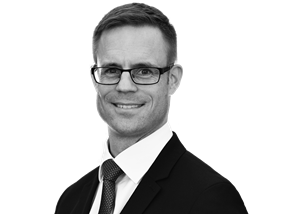Out-Law / Your Daily Need-To-Know
Out-Law News 3 min. read
Copyright and freedom of expression are balanced in Copyright Directive, says CJEU advisor
20 Jul 2021, 7:40 am
CJEU advocate general Henrik Saugmandsgaard Øe has said that Article 17 of the Copyright Directive is compatible with the freedom of expression and information guaranteed in Article 11 of the Charter of Fundamental Rights of the EU.
In 2019 people all across Europe took to the streets to protest against Article 17, saying that it would lead to online platforms having to introduce upload filters.
Article 17 says that large platform operators such as Youtube and Facebook can be held liable for content illegally uploaded by their users. To avoid liability the platforms must either obtain a license for the material or block unauthorised content. These blocking measures would be likely to include ‘upload filters’, software which uses an algorithm to filter the content.
Protesters believed automated filtering might result in over-blocking of content users have uploaded without any copyright infringement. They doubted the ability of algorithms to take account of whether content was allowed under exemptions for caricature, parody or pastiche.
Poland brought an action before the CJEU asking it to order the annulment of Article 17, saying that it infringes the right to freedom of expression and information.
Opinions of advocates general are not binding on the CJEU, and the court will now have to decide whether imposing monitoring and filtering obligations on online intermediary service providers is compatible with that freedom.
"Article 17 of the DSM Copyright Directive was amongst the most disputed provisions of the legislative initiative throughout the entire law-making process," said Dr Nils Rauer, copyright expert at Pinsent Masons, the law firm behind Out-Law. "In March 2019, up to 170,000 people went out on the streets in Brussels and elsewhere expressing their protest. The core reason for all this is the clash of very diverse interests. The so-called 'value gap' shall be closed, meaning that authors shall receive a fair proportion of the revenue generated with their works online. It is a fact that plenty of content is uploaded without adequate authorisation. Thus, some sort of filtering must be done. On the other hand, the platforms that are now subject to the new liability regime form an important element in modern communication, they allow access to information and provide means of expressing one’s views. Thus, any type of over-blocking should be prevented."
Article 17 is intended to balance the interests of users, authors and platforms. Saugmandsgaard Øe said that the court should find that Article 17 is compatible with the rights to freedom of expression and information and should dismiss the action brought by Poland.
"Article 17 is not ignorant of the right to freedom of expression. Neither is the provision disproportionate in its aim of protecting copyrighted works and authors’ interests," said Anna-Lena Kempf, a copyright expert at Pinsent Masons. "Intellectual property is also a fundamental right protected by the Charter. It is all about balancing those rights in the right way. This needs structure and defined processes. Article 17 provides this guidance. It is now for the member states to implement the article into domestic law in due course. The deadline for such implementation lapsed on 7 June 2021. Germany met this deadline, but Poland has not started the law-making process."
The advocate general admitted that the new regime entails a significant risk of 'over-blocking' lawful information as online platforms may tend to prevent the uploading of all content reproducing protected works identified by the rightholders. This risks preventing the upload of content that falls into legitimate use exemptions. Saugmandsgaard Øe said that upload filters could increase that risk, since those tools are not able to understand the context in which such works are reproduced.
But Saugmandsgaard Øe also said that in Article 17, the EU legislator provided sufficient safeguards to minimise that risk, as providers of online platforms are not allowed to preventively block all content reproducing the works identified by the rightholders, including lawful content.
Rauer said: "It is a difficult task to get the balancing of interests right. In practice, automated upload filtering needs to be deployed because of the sheer volume of uploads minute after minute. What we need is intelligent algorithms capable of learning how to distinguish between a lawful caricature, parody or pastiche and an unlawful adaptation of the original work. Today, this cannot be accomplished by automated processes only. Rather, we need the human eye as ultimate control to avoid mistakes."

